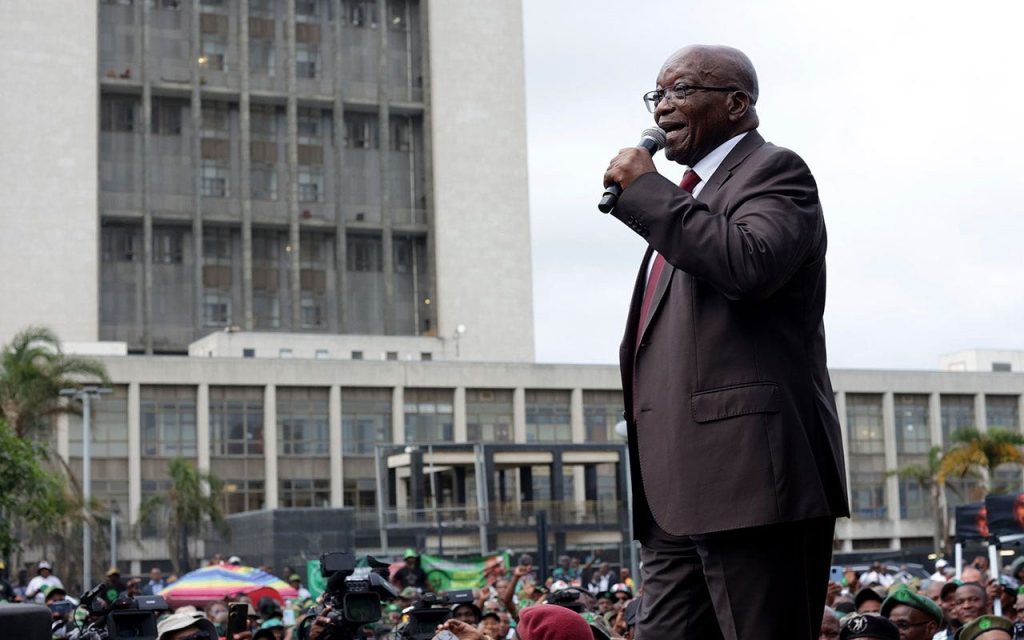South African police are investigating allegations of signature forgery by Jacob Zuma’s MK Party in relation to national election registration. The party is facing legal challenges regarding its eligibility to participate in the May 29 elections. A former party official has claimed that there was a scheme to forge signatures, prompting an investigation by authorities. The Independent Electoral Commission had rejected the party’s registration last year, before a successful second attempt. However, Zuma’s eligibility to stand as a candidate for Parliament has also been questioned due to criminal convictions and a prison sentence in 2021.
The MK Party, which has been critical of the ruling African National Congress, is under scrutiny as the allegations of signature forgery have come to light. The party’s leader, Jacob Zuma, announced his involvement with the party in December, leading to further controversy as he campaigns against the ANC, which he previously led. Zuma’s presidency was marred by corruption allegations and he is currently facing a trial for corruption, though legal delays have hindered progress in the case. Despite this, Zuma remains popular in some areas of South Africa, and his new party is expected to attract some of the ANC’s vote, if allowed to participate in the upcoming elections.
The investigation into the alleged signature forgery by the MK Party follows a report in a national newspaper detailing a former party official’s claims of an elaborate scheme to falsify signatures required for party registration. The Independent Electoral Commission has called for an investigation, and the National Police Commissioner has confirmed that an inquiry has been opened in Cape Town, where the forgery allegedly took place. The investigation aims to determine if there is enough evidence to bring charges against those involved in the alleged forgery.
The upcoming elections in South Africa are anticipated to be significant, as polls and analysts suggest that the ANC could potentially lose its parliamentary majority for the first time. This could result in the need for a coalition government to maintain power. The outcome of the elections will shape the political landscape of the country and could mark a turning point in the ruling party’s dominance. The allegations against the MK Party add a layer of complexity to the election process and could impact the distribution of votes.
Despite the legal challenges facing the MK Party and Jacob Zuma, there remains a level of support for both entities in certain parts of South Africa. Zuma’s criticisms of President Cyril Ramaphosa, his successor, have resonated with some disillusioned citizens, contributing to ongoing political tensions within the country. The final ruling on Zuma’s eligibility to stand as a candidate for Parliament is pending, with a Constitutional Court decision expected next month. The outcome will further shape the political landscape in the run-up to the May 29 elections.
The implications of the allegations of signature forgery by the MK Party are significant, as it could lead to disqualification from the elections if found to be true. The investigation by authorities will clarify the extent of the forgery scheme and determine the legal consequences for those involved. The outcome of the investigation will impact the credibility of the MK Party and the fairness of the election process, adding further uncertainty to an already contentious political climate in South Africa.


